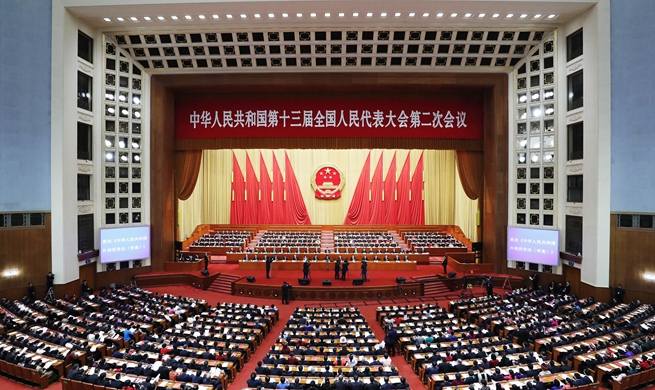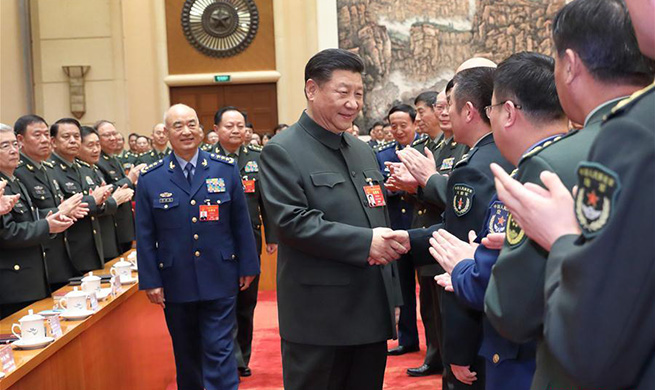by Xinhua writers Xiong Maoling, Hu Yousong
WASHINGTON, March 16 (Xinhua) -- China has stepped up its protection of intellectual property (IP) rights over the past years, and the newly passed foreign investment law indicates that it is willing to keep up with the efforts, said a renowned economist.
Yukon Huang is a senior fellow with the Asia Program at the Carnegie Endowment for International Peace, a foreign policy think tank based in Washington D.C..
He told Xinhua in a recent interview that even though China's IP protection is not as strong as that in some developed countries, "it's actually been improving quite a lot."
"The concept of patenting by Chinese companies became very prominent," he said, adding that China's number of issued patents has soared in the last four or five years.
Huang, who served as the World Bank's country director for China from 1997 to 2004, noted that China has refined its court system to enhance IP protection.
"Better courts were created in the major cities, (like) Shanghai, Beijing, Shenzhen, only in the last four or five years, and more neutral courts are being created throughout China," Huang said.
Citing a recent survey conducted by the American Chamber of Commerce in Beijing, he said over 90 percent of U.S. companies have acknowledged China's efforts in improving IP protection.
Huang said the foreign investment law shows that China intends to make continued progress in boosting IP protection.
China's national legislature on Friday passed the foreign investment law, which will become effective on Jan. 1, 2020. The law aims to improve the transparency of foreign investment policies and ensure domestic and foreign enterprises are subject to a unified set of rules and compete on a level playing field, according to an explanatory document.
The law stipulates that the state shall protect the IP rights of foreign investors and foreign-invested enterprises, and shall manage foreign investment according to the system of pre-establishment national treatment plus a negative list.
"The foreign investment law is really about intentions and establishing principles," said Huang, whose research focuses on China's economy and its regional and global impact.
Pointing out that some of the issues are very complicated, he suggested China lay out more details in order to specify regulations on implementation.
The objective of moving to a negative list, Huang said, is "a very good idea" and gives "greater clarity to foreign investors."
Noting that China's negative list has been getting shorter over the past few years, Huang said the inclusion of a negative list in the law means that the principle has been accepted within the Chinese system.
By the end of 2018, about 960,000 foreign-invested enterprises had been set up in China, with the accumulated foreign direct investment exceeding 2.1 trillion U.S. dollars, according to China's Ministry of Commerce.
Huang said it is in line with China's interests to continue welcoming more foreign investment because it promotes competition.
The Chinese economy today is "extraordinarily competitive," but the services sector is not as well-developed as the manufacturing sector, Huang said.
"So liberalizing foreign investment in these areas increases competition, (and) brings in the kinds of skills that China just really needs," he said. "It's a win-win for both sides."

















